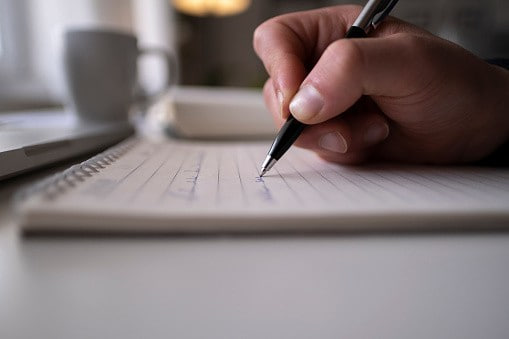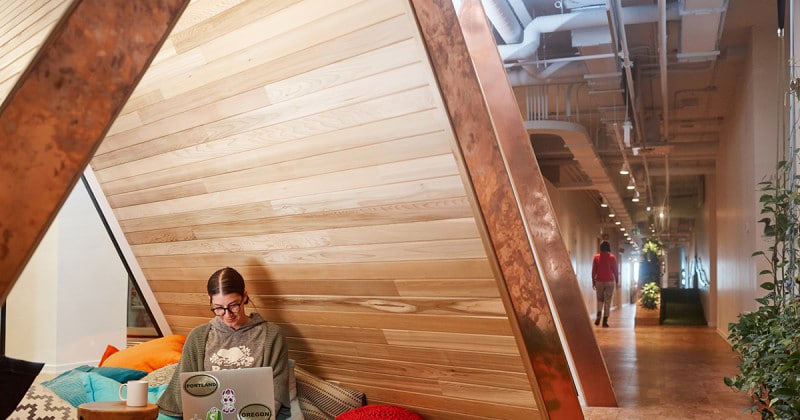10 Habits for Creating a Distraction-Free Work Environment
In today’s world, we face many distractions competing for our attention when we start working. Therefore, creating a distraction-free environment has become crucial for enhancing our focus on high-priority tasks. The best approach when we feel that we are losing control is to pause, reevaluate our behavior, and identify both the positive and negative aspects of our behavior.
10 habits for creating a distraction-free work environment:
1. Work Offline
Most people struggle with internet addiction, especially these days as we carry our devices around constantly. This is one of the biggest obstacles to focusing and productivity with unlimited content at our fingertips.
Therefore, you should disconnect from the internet by turning off the router, disabling cellular data on your smartphone, or going to a place with no internet to complete your work.
If you are in an office or school environment, close all applications that require an internet connection on your computer and focus on working offline. When working on internet-dependent tasks, you can conduct an hour of research online, save the necessary data, and then move to offline work to finish the task.
2. Turn Off the TV
Our reliance on free broadcast television has decreased in the internet era, so this method is not as crucial as it used to be. However, turning on the TV while attempting to work can be a needless distraction because you might be tempted to stop working to check what's going on. Instead, challenge yourself to switch off the TV for a while and observe whether you miss it. This will eliminate a distraction and free up time for more productive activities.
3. Write Down Your Key Tasks Every Morning
Writing down your tasks first thing in the morning has a lot of advantages. However, you only need to write down 1-3 daily tasks.

Don’t overwhelm yourself with a long to-do list you won’t be able to complete. Keep those items in a task management app or a separate written list where you can unload everything on your mind.
4. Turn Off Notifications on All Your Devices
Apps are always competing for your attention, and one of the best ways to win this competition is by constantly sending you notifications so you don’t miss anything.
These notifications tempt you to take a quick glance and click or interact when you don’t need to and when you’re trying to work. It’s incredibly hard to ignore these notifications.
Is there anyone who doesn't check their incoming email notifications? You should disable all notifications so that you can take back control of your work. You can always set aside time to check all your apps during your free time.
5. Find a Quiet Place
Your favorite place might be the café you frequent, a public park, or even a quiet room in your office building. Try several different locations to find where you feel calm and peaceful. Sometimes it’s good to change your location. You might go somewhere overlooking a lake or visit your favorite café.

You will probably often feel more productive in those places. Once you have located your quiet place, ensure to schedule a regular time on your weekly calendar to visit it.
6. Declutter Your Physical Space
Items that can pile up on your desk and cause clutter include pens, papers, cables, phones, coffee cups, and food containers. Continuous exposure to clutter increases your cortisol levels and decreases your productivity.
Decluttering your desk is a good place to start when trying to create a distraction-free workspace. You will feel less distracted and anxious mentally if your desk is clear of items.
7. Avoid Opening Multiple Tabs Simultaneously
Multiple open windows are a clear indicator of distraction, chaos, and overwhelm. It’s amazing how quickly we can get lost in a maze of browser tabs, document windows, and emails.
Focusing on just one task is essential for boosting productivity at work. Opening multiple windows simultaneously makes it harder to find what you were working on and adds to mental clutter. For example, it's best to close all other windows and concentrate only on checking your email when dealing with it. The same goes for browsing articles in your browser; once you've finished reading one, close any open tabs and go on to the next search result.
8. Establish an Evening and Morning Routine
Good sleep habits are one of the most important habits for boosting productivity. You won't have enough energy to concentrate and perform at your best if you are not well-rested.
Additionally, having an evening routine will allow you to complete your morning routine and start your day with clarity and momentum.
Here’s an evening routine example:
- Turn off the internet.
- Shut down the computer and put phones/tablets in airplane mode.
- Clean the kitchen and organize dishes.
- Tidy up your home workspace.
- Fold clothes and put them in their appropriate place.
- Brush and floss your teeth.
- Cleanse your face.
- Do stretching exercises.
- Relax (read a book, listen to music, etc.).
9. Clear Your Inbox
One of the best practices in this regard is to avoid using multiple folders in your inbox. Most popular email apps like Outlook, Gmail, and Apple Mail offer an archiving feature. So, messages can be archived rather than moved to different folders. You can always search your inbox to find an old message. Delete a message (like spam) if you are certain that you won't need it. Remember that once you delete a message, you cannot retrieve it.
10. Refuse to Take on More Responsibilities
The ability to prioritize tasks and know when to say "no" is the most crucial habit for increasing productivity. This might mean refusing to attend meetings, participating in new projects, or even declining phone calls.
Avoid the trap of being a people-pleaser. This is a surefire way to burden yourself with commitments that drain your energy and distract you from what truly matters.
Therefore, develop the habit of reviewing your calendar's tasks and consider the potential effects that granting others' requests may have on your productivity.
In Conclusion
Establishing a distraction-free environment has become essential for improving our focus and productivity in a world full of distractions. Practical habits such as turning off the internet, decluttering, and organizing emails help us regain control over our attention and improve our productivity. Additionally, having a sleep routine and establishing an evening routine helps boost our energy and focus.
Also, managing our commitments and staying focused requires the ability to recognize what is important and when to turn down new tasks. Practicing these habits boosts our productivity and allows us to achieve our goals more efficiently.


 Main menu
Main menu





